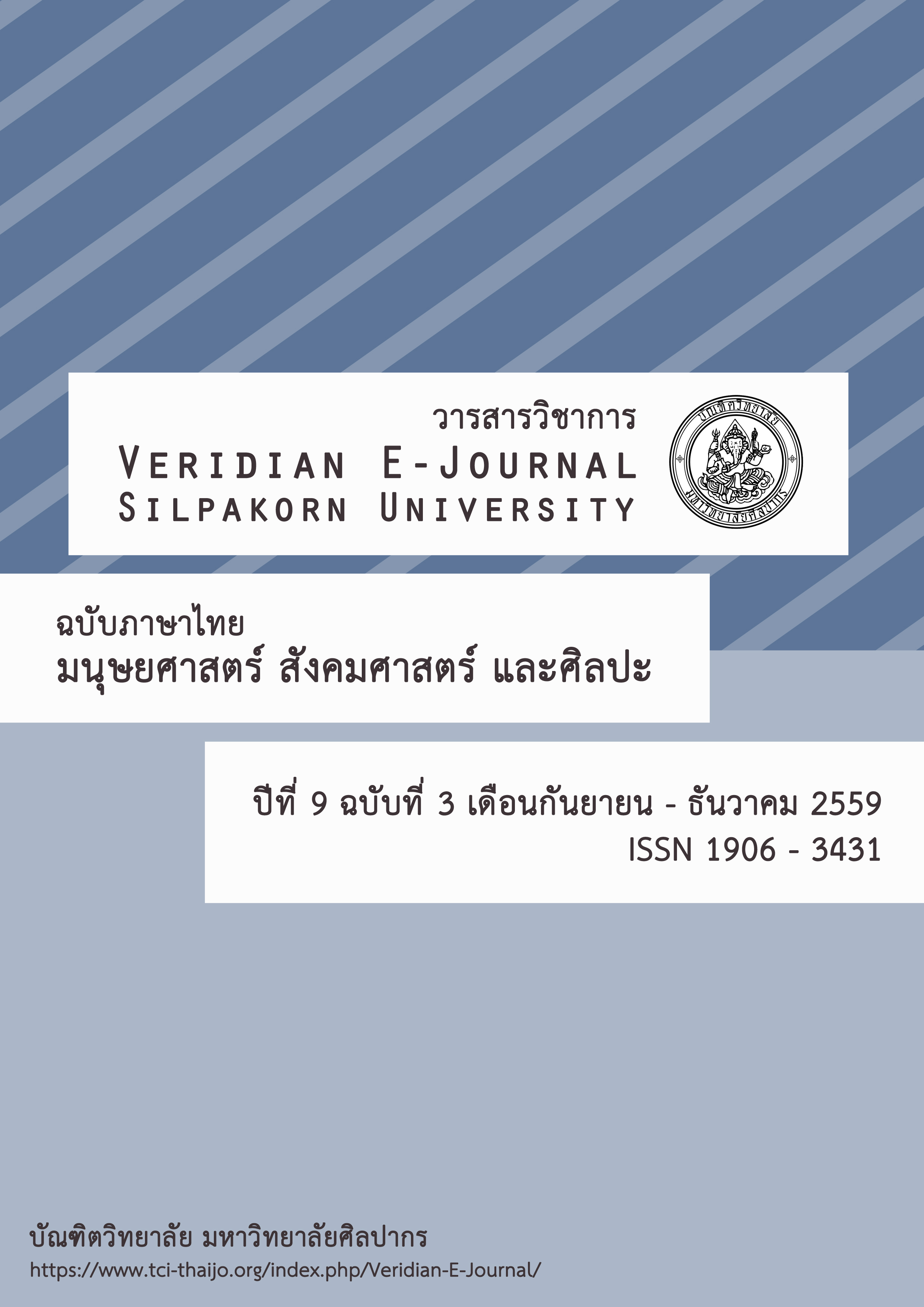แนวทางการจัดการศึกษานอกระบบและการศึกษาตามอัธยาศัยสำหรับประเทศไทย
Main Article Content
Abstract
การวิจัยครั้งนี้มีวัตถุประสงค์เพื่อ 1) ศึกษาการจัดการศึกษานอกระบบและการศึกษาตามอัธยาศัยในประเทศไทยและต่างประเทศ และ 2) เสนอแนวทางการจัดการศึกษานอกระบบและการศึกษาตามอัธยาศัยสำหรับประเทศไทย
การวิจัยแบ่งเป็น 2 ขั้นตอนคือ 1) การศึกษาข้อมูลที่เกี่ยวข้องกับการจัดการศึกษานอกระบบและการศึกษาตามอัธยาศัย โดยศึกษาข้อมูลจาก เอกสาร ตำรา งานวิจัยที่เกี่ยวข้อง นำข้อมูลมาวิเคราะห์และสังเคราะห์เพื่อพัฒนาเป็นกรอบแนวทางการศึกษานอกระบบและการศึกษาตามอัธยาศัยสำหรับประเทศไทย 2) การสร้างแนวทางการจัดการศึกษานอกระบบและการศึกษาตามอัธยาศัยสำหรับประเทศไทย โดยการสอบถามความคิดเห็นของผู้ทรงคุณวุฒิ จำนวน 8 ท่าน ด้วยวิธีการสนทนากลุ่ม และการตรวจสอบประสิทธิภาพของแนวทางการจัดการศึกษานอกระบบและการศึกษาตามอัธยาศัย โดยการสัมมนาเพื่อรับรองแนวทางการศึกษานอกระบบและการศึกษาตามอัธยาศัยสำหรับประเทศไทย กับผู้ปฏิบัติงานภาคสนาม จำนวน 8 ท่าน
ผลการวิจัยพบว่า การจัดการศึกษานอกระบบและการศึกษาตามอัธยาศัยในประเทศไทยและต่างประเทศมีความสอดคล้องกับสภาพแวดล้อม วิถีชีวิตและความต้องการของกลุ่มเป้าหมายเพื่อการเรียนรู้ตลอดชีวิตแนวทางการศึกษานอกระบบและการศึกษาตามอัธยาศัยสำหรับประเทศไทยต้องคำนึงถึงองค์ประกอบ5 ประการ 1) กฎหมายและนโยบายทางการศึกษานอกระบบและการศึกษาตามอัธยาศัย ควรเป็นกฎหมายและนโยบายเพื่อการศึกษาตลอดชีวิตที่เปิดโอกาสให้เรียนรู้ได้ทุกรูปแบบ ทุกที่ ทุกเวลาอย่างไม่มีเงื่อนไข ทั้งการศึกษาในระบบ การศึกษานอกระบบและการศึกษาตามอัธยาศัย เพื่อสร้างการเรียนรู้ตลอดชีวิตอย่างยั่งยืน 2)โครงสร้างและการกระจายอำนาจ การศึกษา โดยกระจายอำนาจลงสู่ท้องถิ่นให้สามารถบริหารงาน ขับเคลื่อนและพึ่งพาตนเองได้ 3) หลักสูตรและรูปแบบการจัดการศึกษานอกระบบและการศึกษาตามอัธยาศัยมีความหลากหลาย ยืดหยุ่นและใช้ประโยชน์ได้จริง 4) การพัฒนาประชาชนให้เป็นบุคคลแห่งการเรียนรู้ตลอดชีวิต มีนิสัยใฝ่รู้และพัฒนาตนเองอย่างต่อเนื่องตลอดชีวิต และ 5) การส่งเสริมภาคีเครือข่ายทางการศึกษานอกระบบและการศึกษาตามอัธยาศัย จากทุกภาคส่วนในสังคมให้มีส่วนในการจัดการศึกษา
The purpose of this research was to 1) study the nonformal and informal education in Thailand and The Other Country 2) study the nonformal and informal education abroad and 3) to propose a guideline for providing non-formal and informal education for Thailand.
The study was conducted in 2 stages which were 1) studied in non-formal and informal education in Thailand reviewing the related documents and literatures both in Thailand and Foreign Countries ; analyzed and synthesized data from the first stage in order to develop guidelines for providing non-formal and informal education for Thailand and 2) to develop guidelines for the management of nonformal and informal education for Thailand using focus group discussion with eigth experts in the field, then conducted with a field operations of eigth members, with group seminars consisting of non-formal and informal education. Analysis of data from the content analysis.
The finding of the study the nonformal and informal education in Thailand and the other country in consistent with the environment the way of life and need of target groups for lifelong learning was approach to education, non-formal and informal education for Thailand. It consists of five major components: 1) The legal and educational policy. Should have laws and policies on lifelong learning the establishment of a national education reform non-formal and informal education. Based structure learning The agencies took part in the management of non-formal and informal education to improve the lives of people more effectively. Both public and private National and local levels to play a role in the promotion of learning for people of all levels 2) Restructuring and decentralization of the power distribution to the local administration can provide. Powered and self-reliant. 3) Curriculum and management style, formal education and informal education are diverse, flexible and practical use. 4) The development of a person of lifelong learning. Habit learning and development continues throughout life and 5) Parties to promote non-formal and informal networks. In various activities to individuals require cooperation from network partners in the work of non-formal and informal education. From all sectors of society to take part in the study.

